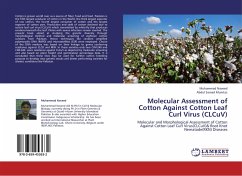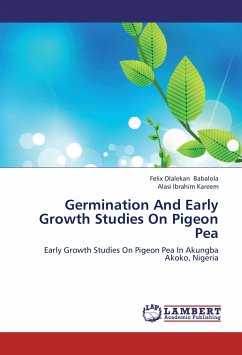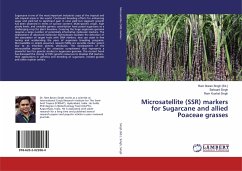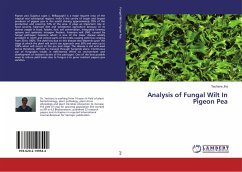
Analysis of Fungal Wilt In Pigeon Pea
Versandkostenfrei!
Versandfertig in 6-10 Tagen
43,99 €
inkl. MwSt.

PAYBACK Punkte
22 °P sammeln!
Pigeon pea (Cajanus cajan L. Millspaugh) is a major legume crop of the tropical and subtropical regions. India is the centre of origin and largest producer of pigeon pea in the world sharing approximately 70% of the production and covering 74% of the area. It plays an important role in food security, balanced diet and subsistence agriculture because of its diverse usages in food, fodder, fuel, soil conservation, integrated farming systems and symbiotic nitrogen fixation. Fusarium wilt (FW), caused by fungal pathogen Fusarium udum, is one of the major disease widely prevalent in north and centr...
Pigeon pea (Cajanus cajan L. Millspaugh) is a major legume crop of the tropical and subtropical regions. India is the centre of origin and largest producer of pigeon pea in the world sharing approximately 70% of the production and covering 74% of the area. It plays an important role in food security, balanced diet and subsistence agriculture because of its diverse usages in food, fodder, fuel, soil conservation, integrated farming systems and symbiotic nitrogen fixation. Fusarium wilt (FW), caused by fungal pathogen Fusarium udum, is one of the major disease widely prevalent in north and central parts of the India causing yield loss ranging from 30 to 100%. The yield loss due to this disease also depends upon the stage at which the plant wilt and it can approach over 50% and even up to 100% when wilt occurs at the pre pod stage. The disease is soil and seed borne therefore, difficult to manage through fungicide alone. Continuous use of fungicides results in detrimental effect on environment and development of resistant strains of the pathogen. One of the best possible ways to reduce yield losses due to fungus is to grow resistant pigeon pea varieties.



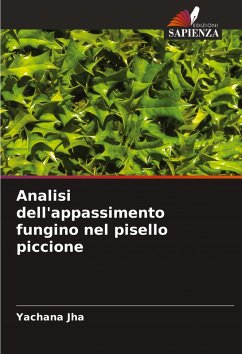
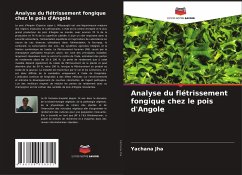
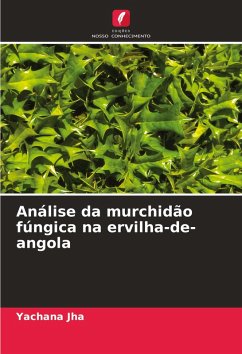

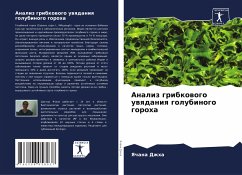
![Fusarium Wilt Resistance in Pigeonpea [Cajanus cajan (L.) Millsp.] Cover Fusarium Wilt Resistance in Pigeonpea [Cajanus cajan (L.) Millsp.]](https://bilder.buecher.de/produkte/47/47615/47615464n.jpg)
